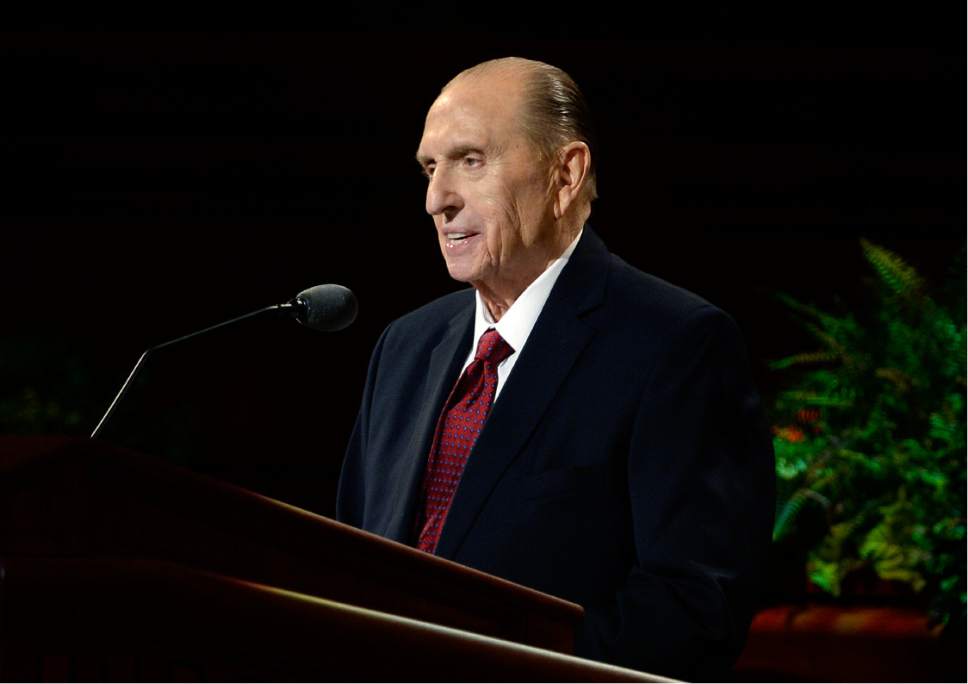This is an archived article that was published on sltrib.com in 2016, and information in the article may be outdated. It is provided only for personal research purposes and may not be reprinted.
Attorneys for four Navajos suing the LDS Church over alleged sexual abuse said Wednesday they intend to subpoena the faith's president, Thomas S. Monson, to testify about the former program that placed children in Mormon homes off the reservation during the school year.
The remarks came after a federal judge in Salt Lake City rejected a church argument that Navajo tribal courts do not have jurisdiction over three lawsuits alleging that the Utah-based religion is liable for damages resulting from sexual abuse to tribal members while they participated in the church's Indian Student Placement Program between 1965 and 1983.
U.S. District Judge Robert Shelby ruled that there was insufficient evidence to determine whether the tribal court was exercising proper jurisdiction over the lawsuits.
That ruling may clear the way for attorneys to subpoena Monson, the increasingly frail 89-year-old leader of The Church of Jesus Christ of Latter-day Saints.
Monson may have inside knowledge about the placement program and about George P. Lee, the one-time Mormon general authority who might have overseen it on the reservation, according to a court filing.
"We think he has very germane information," said Craig Vernon, an attorney for the Navajos from Coeur d'Alene, Idaho, who added there are no other top LDS leaders from that era still around.
Lee was excommunicated in 1989 and in 1994 pleaded guilty to attempted sexual abuse of a 12-year-old girl. He died in 2010.
The Navajos' attorneys believe Lee had oversight of the placement program while living on the reservation and asserted they had further information that Lee sexually molested other young girls.
The LDS Church had no immediate comment.
The church's lawyers previously had sought to quash an attempt to subpoena Monson, arguing the Navajos had not shown that he had "unique" information that was relevant to the matter.
Four Navajos sued the LDS Church in Navajo Nation District Court in Window Rock, Ariz., earlier this year.
The church in turn filed a lawsuit in federal court in Salt Lake City, arguing that Navajo courts did not have jurisdiction because the alleged sexual abuse took place off the reservation.
Shelby pointed out that the Navajos' allegation that parts of the placement program took place on the reservation and that church officials had failed to warn parents or report the abuse to reservation authorities.
The judge found that it is "necessary to develop the factual record before the court can conclude that the tribal court clearly lacks jurisdiction."
Shelby also wrote that the law was unsettled in areas of tribal court jurisdiction and that allowing the lawsuits to continue in the Navajo court would promote policy considerations of self-government and the development of tribal courts.



